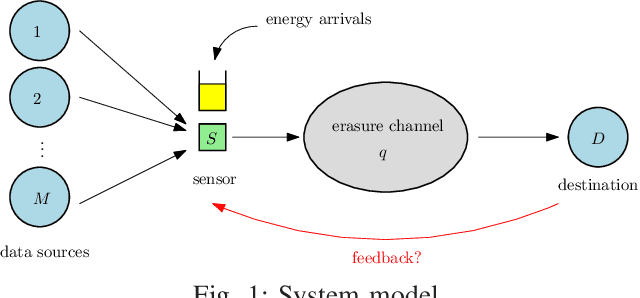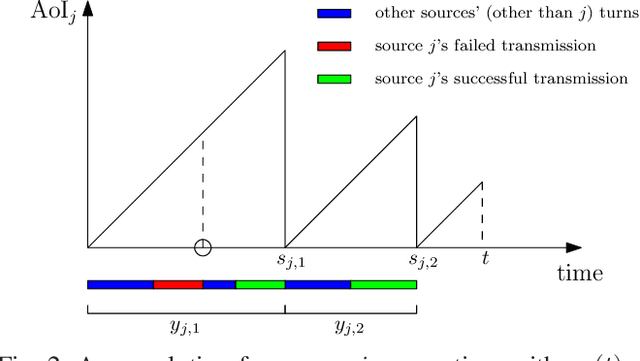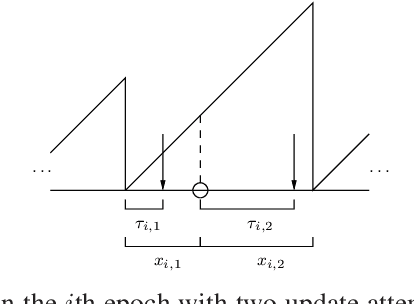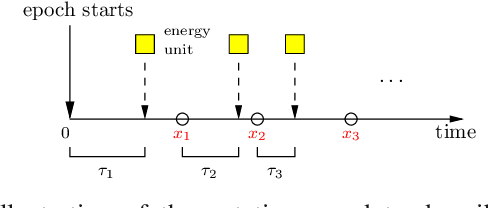Timely Status Updating Over Erasure Channels Using an Energy Harvesting Sensor: Single and Multiple Sources
Paper and Code
Sep 14, 2021



A status updating system is considered in which data from multiple sources are sampled by an energy harvesting sensor and transmitted to a remote destination through an erasure channel. The goal is to deliver status updates of all sources in a timely manner, such that the cumulative long-term average age-of-information (AoI) is minimized. The AoI for each source is defined as the time elapsed since the generation time of the latest successful status update received at the destination from that source. Transmissions are subject to energy availability, which arrives in units according to a Poisson process, with each energy unit capable of carrying out one transmission from only one source. The sensor is equipped with a unit-sized battery to save the incoming energy. A scheduling policy is designed in order to determine which source is sampled using the available energy. The problem is studied in two main settings: no erasure status feedback, and perfect instantaneous feedback.
 Add to Chrome
Add to Chrome Add to Firefox
Add to Firefox Add to Edge
Add to Edge